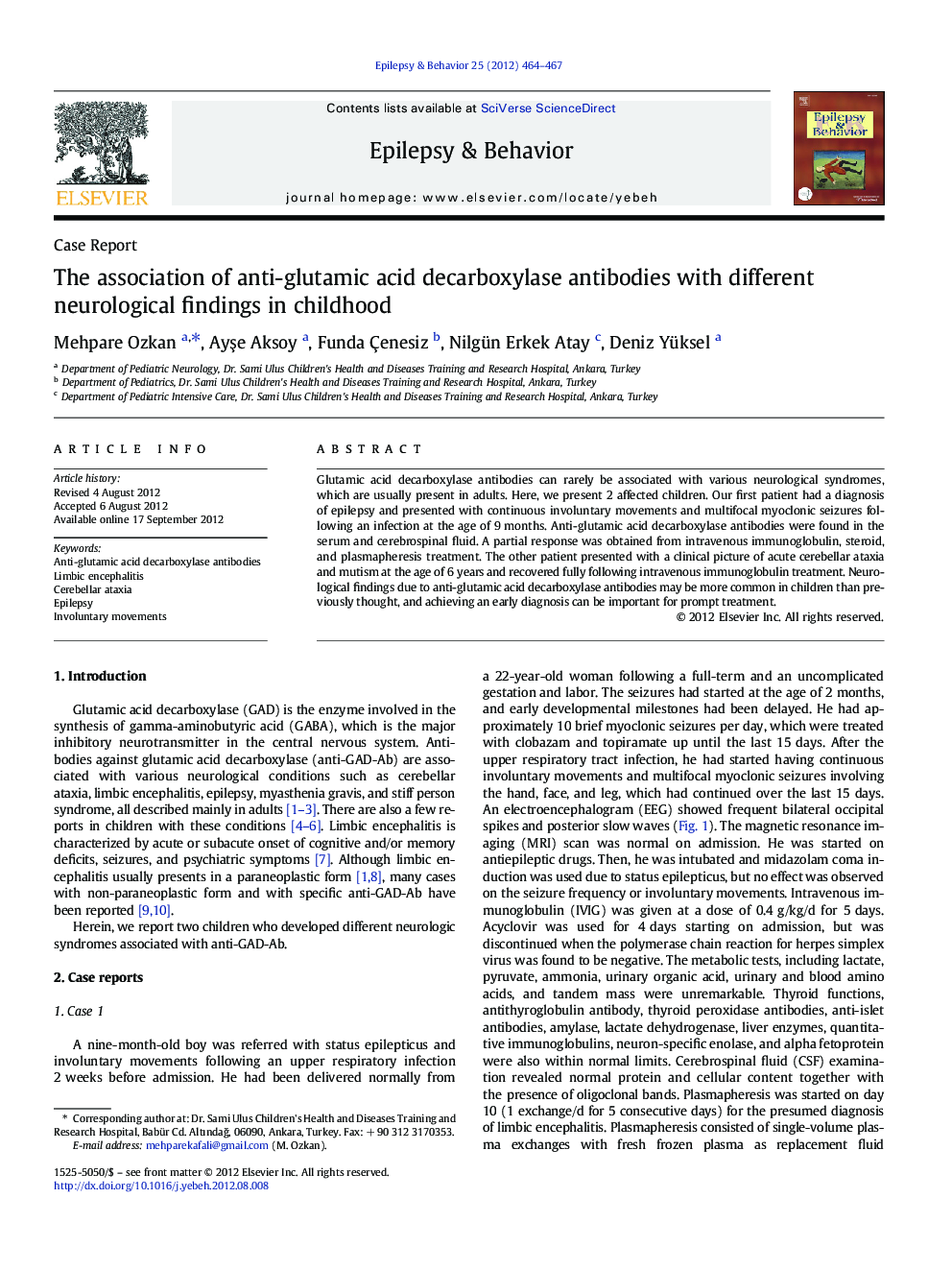| Article ID | Journal | Published Year | Pages | File Type |
|---|---|---|---|---|
| 6013348 | Epilepsy & Behavior | 2012 | 4 Pages |
Abstract
Glutamic acid decarboxylase antibodies can rarely be associated with various neurological syndromes, which are usually present in adults. Here, we present 2 affected children. Our first patient had a diagnosis of epilepsy and presented with continuous involuntary movements and multifocal myoclonic seizures following an infection at the age of 9Â months. Anti-glutamic acid decarboxylase antibodies were found in the serum and cerebrospinal fluid. A partial response was obtained from intravenous immunoglobulin, steroid, and plasmapheresis treatment. The other patient presented with a clinical picture of acute cerebellar ataxia and mutism at the age of 6Â years and recovered fully following intravenous immunoglobulin treatment. Neurological findings due to anti-glutamic acid decarboxylase antibodies may be more common in children than previously thought, and achieving an early diagnosis can be important for prompt treatment.
Keywords
Related Topics
Life Sciences
Neuroscience
Behavioral Neuroscience
Authors
Mehpare Ozkan, AyÅe Aksoy, Funda Ãenesiz, Nilgün Erkek Atay, Deniz Yüksel,
